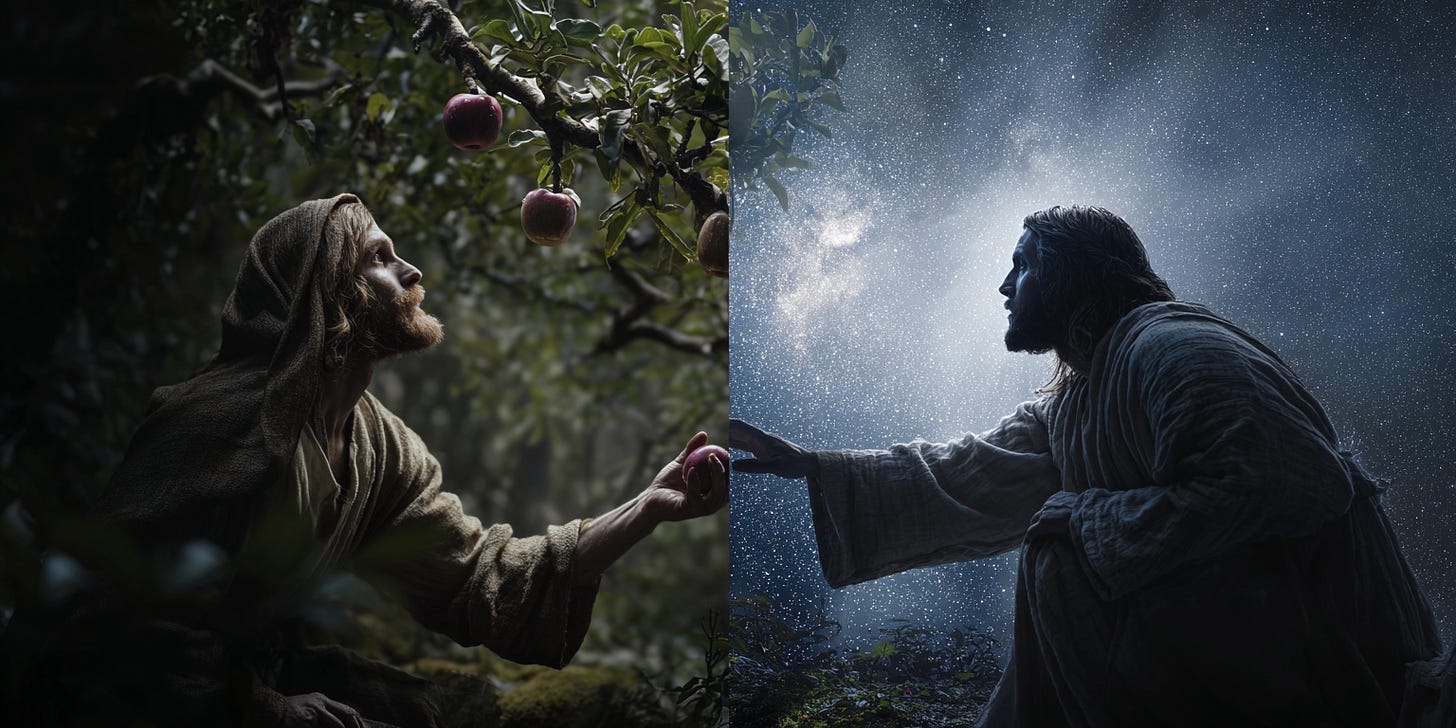Week 33: The Second Adam: Jesus and the Restoration of Humanity
Exploring the Contrast Between Adam’s Fall and Christ’s Redemption
Theme:
Romans 5 unfolds the cosmic contrast between two pivotal figures in human history: Adam and Jesus. Through one, sin and death entered the world; through the other, righteousness and life were made available. Paul reveals how Jesus, the second Adam, undoes the curse, establishes peace with God, and offers abundant grace to all who believe.
Objectives:
Understand the contrast between Adam’s disobedience and Jesus’ obedience.
Reflect on how Jesus restores humanity’s relationship with God, broken through Adam’s sin.
Explore the abundance of grace and justification found in Christ.
Scripture Focus:
Introduction
Humanity’s story is deeply affected by two men—Adam, who represents the fall, and Christ, who represents restoration. Romans 5 is not merely a comparison but a revelation of divine justice and mercy. Where sin increased, grace overflowed. Where death reigned, life triumphed.
Peace with God Through Jesus [Romans 5:1–11]
Through justification by faith, believers are brought into peace with God. This peace is not merely a feeling, but a restored relationship anchored in Christ's sacrifice. It is the assurance that we are no longer enemies but children. Even suffering, when seen through this lens, becomes purposeful—producing endurance, character, and hope. God's love is not only declared but poured out through the Holy Spirit.
The Contrast Between Adam and Christ [Romans 5:12–19]
Adam's disobedience introduced sin and death into the world, affecting all of creation. His act distorted humanity's image and severed communion with God. In contrast, Jesus' obedience brings righteousness and life. He becomes the new head of a restored humanity. Just as one trespass brought condemnation, so one righteous act brings justification. The power of Jesus' obedience does not merely match Adam's fall—it surpasses it.
The Reign of Grace [Romans 5:20–21]
The Law, though holy, exposed the extent of sin. But grace doesn't run out—it overflows. Grace reigns through righteousness, leading to eternal life. This is not temporary relief but eternal restoration. What began as a tragedy in Eden finds its triumph in Christ.
Exploring Key Themes
Justification Brings Peace: Faith in Jesus results in more than forgiveness; it brings reconciliation and peace with God. This peace becomes the foundation for enduring all things with hope.
Christ’s Obedience Surpasses Adam’s Failure: Jesus doesn’t simply reverse the fall—He inaugurates a new order of grace, one where life and righteousness abound. His obedience leads to an abundance of justification.
The Law Highlights, but Grace Overflows: The Law reveals our need, but grace meets that need abundantly. Jesus doesn’t just cleanse us—He transforms and enthrones us in righteousness.
Hope Is Rooted in Love: The Spirit pours out divine love in our hearts, making hope unshakable. Our past, present, and future are secured not by our merit, but by God’s faithful love.
A New Humanity Emerges: Jesus creates a new lineage—a spiritual rebirth into a redeemed race. No longer bound to Adam’s failure, we now live in the abundance of divine favor.
Reflection and Response
How does recognizing Jesus as the second Adam deepen your understanding of salvation?
In what ways has your peace with God changed how you face life’s trials?
What does it mean to you personally that grace abounds more than sin?
How are you living in the power of Jesus’ obedience today?
Key Takeaways
Jesus, the second Adam, restores what Adam lost, offering peace, life, and righteousness.
Justification by faith produces a new identity and unshakable hope.
Grace reigns where sin once ruled, pointing to the triumph of Christ’s obedience.
Conclusion
Romans 5 is a lens through which we see the sweeping scope of redemption. It begins with the fracture of creation through Adam and culminates in the healing power of Christ. We are not destined to remain in the shadow of the first Adam. In Christ, we step into a new legacy—one of grace, peace, and eternal life. The reign of death is over; the reign of grace has begun.


